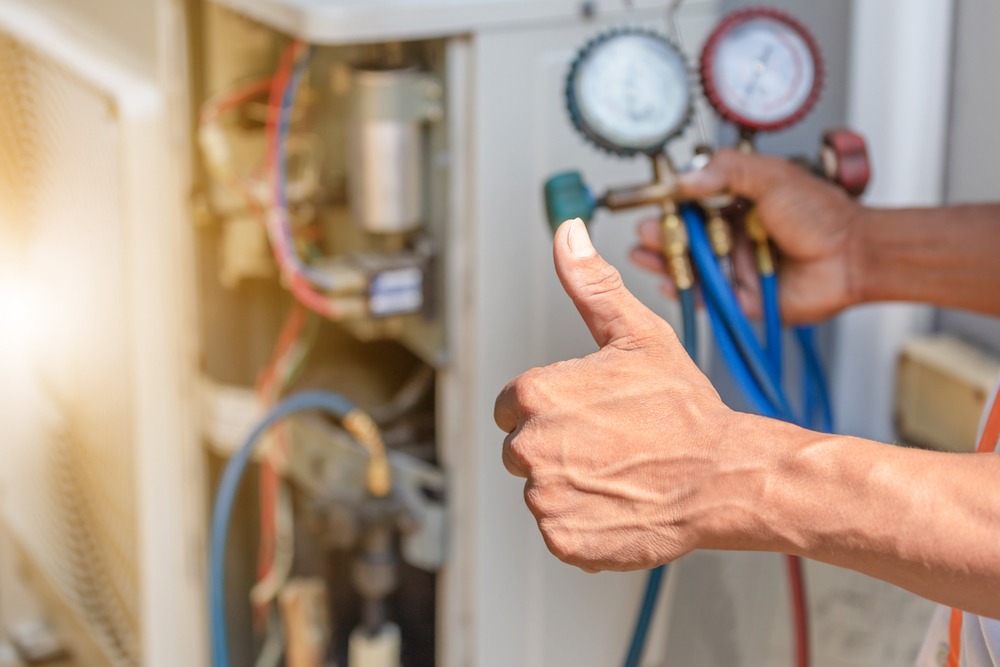Heating and cooling systems in your home are crucial in providing comfort to you and your family.
As such, a heating, ventilation, and air conditioning (HVAC) installation or replacement is one of the significant and vital investments a homeowner must commit to.
Significant spending requires due diligence, and installing an HVAC system is no different. Being a long-term investment with quite a few technical considerations, it’s not easy to choose which one works best according to your requirements.
Below, you’ll find the key elements to look at when planning for an HVAC installation.
With this guide, you’ll be able to make informed decisions in choosing the ideal heating and cooling setup for your home.
1. Get Familiar With The Technical Stuff
A contractor should have trained and well-informed technicians who know everything about HVAC installation.
However, it still pays to brush up on your knowledge about heating and cooling units, including their essential components. This way, you can ensure that you’re making the right decision.
The first step is to know your property’s heating and cooling requirements. This is a critical step in the installation process, being that choosing the wrong heating and cooling units won’t be able to provide you with the best results.
Inadvertently selecting a low-powered model makes your appliance work harder, negatively affecting its lifespan.
Conversely, purchasing a unit with excessive capacity means less energy efficiency and unnecessary increases in power bills.
To arrive at a reasonable figure, measure the actual size of your home and consider the climate in your location. If the summer season in your area is unforgiving, you’ll need a system with higher cooling capacities.
Look for the Seasonal Energy Efficiency Rating (SEER), which measures the cooling efficiency of the air conditioning unit. Higher ratings mean better efficiency.
If it’s the winter season you’re more worried about, get a heating system with higher British Thermal Units (BTUs).
A BTU is used to measure energy, and one BTU represents the unit of heat needed to push one pound of water by one degree Fahrenheit. It may sound daunting, but sources and guides are available online to help you out.
When looking at quotes, ask for the model number and SEER and BTU. If it’s not stated in the document, you may be at risk of getting the lowest-quality and least energy-efficient units.
2. Know What To Look For In A Good HVAC Contractor

Often, there are glaring signs that your heating unit may need replacement, such as weird noises and funny smells. Choosing a good HVAC contractor works in somewhat the same way.
Red flags include the absence of insurance and permits, lack of transparency, and low price offers.
If you’re experiencing these signs with one of the contractors on your shortlist, you should run for the hills.
Conversely, it pays to ask for and check the HVAC contractors’ licenses, insurance coverages, and other pertinent documents on your list.
Before entrusting your family’s safety and comfort, ensure that the company of your choice is qualified, accredited, and proven to perform high-quality HVAC installations.
Apart from the paperwork, ask the contractor for references and former clients. Reach out to former customers and ask for their experience.
Check whether the company is reliable and can perform the job well.
3. Ask About Warranties And Added Value Services
Warranties must cover your HVAC system components for defects and issues. Manufacturers typically set repair and replacement for around five to 10 years for a fixed period.
At the same time, your contractor must be able to guarantee quality for at least one year.
Ask your contractor for a copy of the terms and conditions if you don’t have it yet. Doing so can avoid misunderstandings down the road.
Also, ask your contractor whether they can offer extended warranties for labor and units, as well as spare parts. This can be handy if you need repairs or replacements past the regular coverage.
Lastly, ask the contractor for any add-on services that they can provide.
4. Learn How You Can Maintain Your New HVAC System
An HVAC system must be well-taken care of to perform well, or at least according to expectations. To this end, have your contractor perform preventive maintenance regularly.
Experts recommend an annual check and annual tune-up, but your HVAC company could offer more frequent inspections if necessary.
So, don’t forget to plan and ask your contractor about the servicing schedule. In most cases, a biannual maintenance check, done in the fall and spring, helps ensure that your system works better and for longer.
For more information on keeping your system in excellent condition, check out these HVAC maintenance tips.
Final Thoughts
Homeowners must know all the options before an HVAC installation or replacement.
Contractors must be transparent enough to explain the ideal unit for a property’s heating and cooling needs, including the warranties and services they offer.
At the same time, homeowners must take it upon themselves to brush up their skills on the different elements of HVAC installation to make the ideal choice and optimize this significant home investment.



Comments are closed.